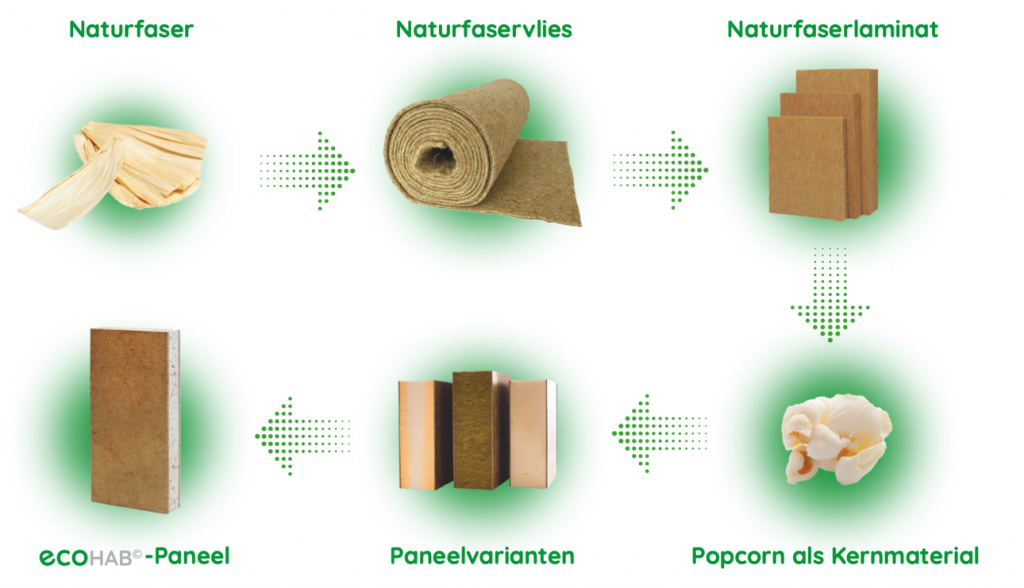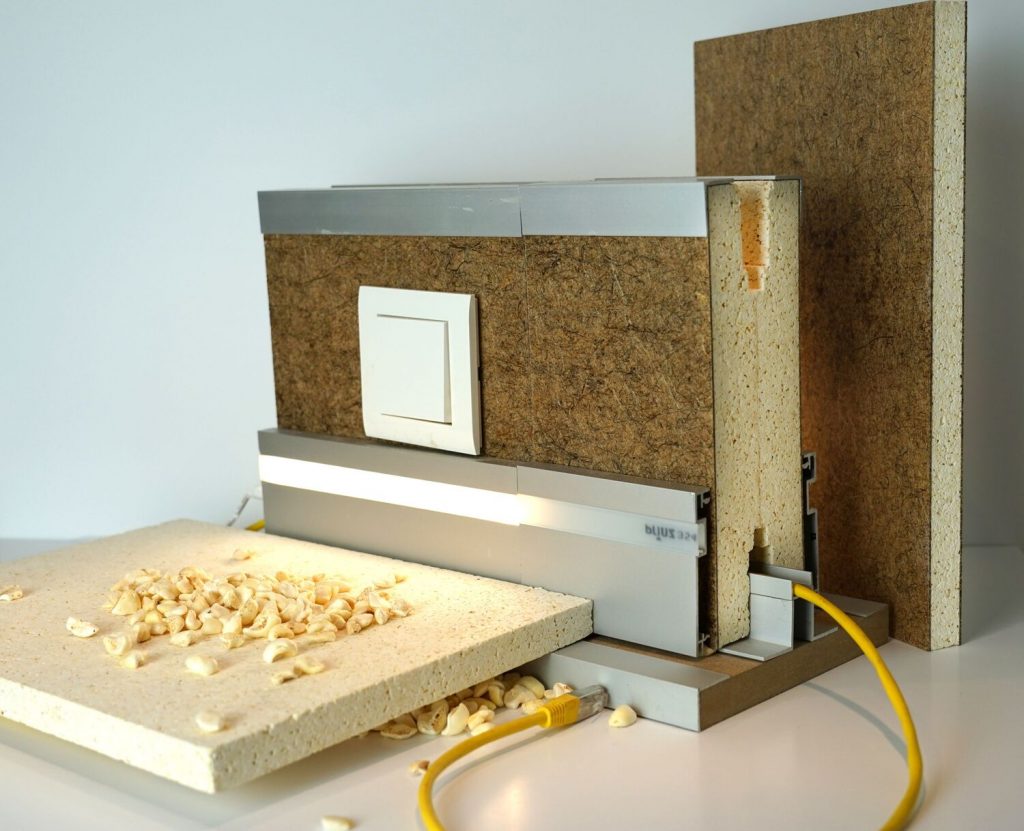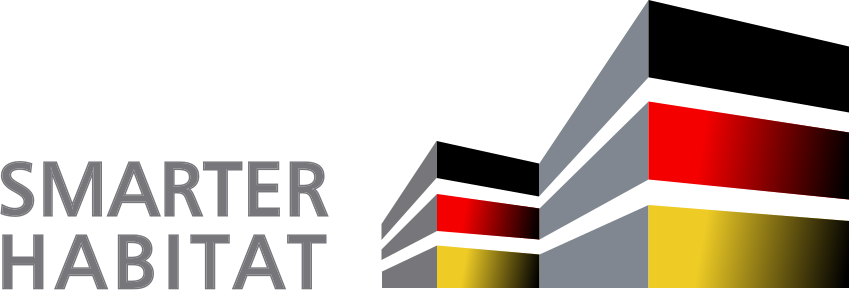PANELS MADE OF HEMP AND POPCORN

 -PANELS MADE OF HEMP AND POPCORN
-PANELS MADE OF HEMP AND POPCORNA bio-based, cost-effective building material for the future
Munich, October 2022 The mission of the start-up SMARTER HABITAT, founded in 2019, is clear: to bring a product onto the market that will make building more environmentally friendly, easier and at the same time cheaper in the future, thereby contributing to affordable housing all over the world create. After years of research and development, a “green” lightweight panel was created that consists of plant materials and agricultural waste and can be produced locally in large quantities in a cost-effective and energy-saving manner and can also be installed quickly and easily. The know-how for production is licensed to SMARTER HABITAT worldwide through a licensing process.
Supported by a network of experts from science, technology and industry, a building material has been developed that, as a bio-based alternative, will not only revolutionize the construction industry in the future, but also accelerate the paradigm shift towards responsible CO₂-neutral construction.
MATERIAL TECHNOLOGY “MADE IN GERMANY”
The sandwich panels consist of two basic components: natural fiber laminates as a top layer and a core material made from popped corn granules. They can be manufactured in a wide variety of dimensions and thicknesses. Natural Composite Laminates (NCL) consist of natural materials such as hemp, flax, sisal and other long-fiber agricultural waste, which are processed into a fleece felt and pressed under high pressure with a special resin.
FROM NATURAL FIBER TO  - PANEL
- PANEL


 - LIGHTWEIGHT PANELS – VERSATILE, NATURAL AND EASY TO INSTALL
- LIGHTWEIGHT PANELS – VERSATILE, NATURAL AND EASY TO INSTALL
THE  - THE ADVANTAGES AT A GLANCE
- THE ADVANTAGES AT A GLANCE
‣ UNIVERSALLY USABLE FOR
- load-bearing components for roofs, ceilings, external walls and foundations,
- non-load-bearing applications such as partitions or dry walls,
- Decorative applications such as building cladding, kitchen and sanitary elements,
- Application in trade fair and shop construction, in mobile homes, tiny houses and much more.
- and suitable for all types of surface treatment.
‣ ENVIRONMENTALLY AND CLIMATE FRIENDLY
- circular building material made from plant-based raw materials or their waste,
- No energy- and water-intensive construction using sand, cement, steel, gypsum, etc.
- environmentally friendly production from regional/local raw materials,
- optimal heat and sound insulation properties,
- Durable, as it is waterproof, fire-resistant and resistant to mold and vermin.
‣ “BUILT-IN” ADDED VALUE
- inexpensive building material,
- reduced energy costs,
- reduced assembly, transport and logistics costs,
- Simple lightweight construction with faster and more efficient installation,
- improved working conditions through reduced dirt and dust pollution,
- high load capacity and outstanding stability,
- Consistently high quality and good scalability through industrial production.
‣ AFFORDABLE HOUSING
- Promotion of modern, climate-friendly and social-humanitarian residential architecture,
- can be implemented quickly and easily globally through on-site production,
- Use of regionally and locally available raw materials,
- Creation of jobs in the construction sector,
- Significant overall improvement in the living conditions of people at risk of housing shortages.



